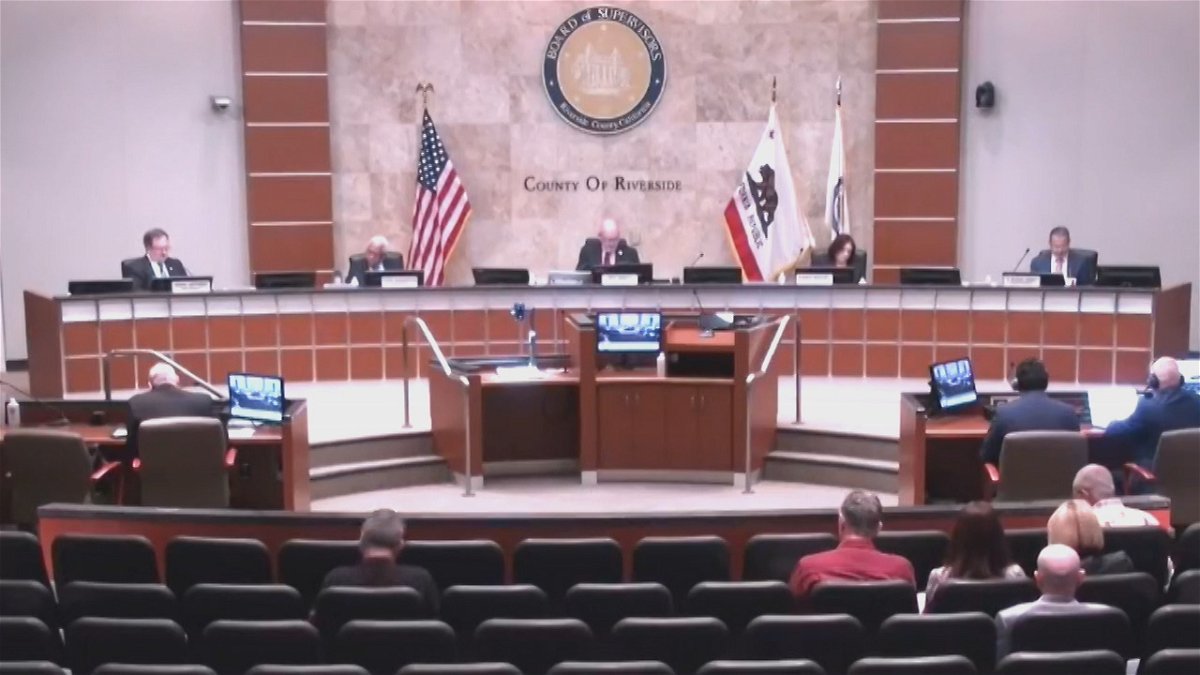Riverside County Supervisors finalize new short-term rental regulations

The Board of Supervisors formally adopted new regulations Tuesday for short-term rental properties in unincorporated areas of Riverside County, establishing fees, occupancy limitations, and other requirements for owners to obtain and retain permits.
"We're moving in the right direction, taking steps we need," Supervisor Chuck Washington said ahead of the 5-0 vote in favor of the overhauled Short-Term Rental Ordinance, No. 927. "(My) Third District has a good chunk of short-term rentals in the county, and 90% are run by people who are ... neighborly. My priority is peace and quiet for neighborhoods."
The board held three prior hearings to consider the revamped ordinance and was set to adopt the new framework on Oct. 4, but the addition of several minor modifications delayed adoption.
The modifications were connected to occupancy limitations. Under the revised "tier" system, a maximum of 10 people will be permitted to stay in a short-term rental residence that occupies a half-acre or less. For residences on lots that are half-acre to two acres, up to 16 guests will be permitted.
Acreage above that amount will mean up to 20 people may stay in a short-term rental in a given period.
Higher tiers and larger spaces, such as ranch-style properties, will enable short-term rental operators to accommodate even larger groups, pending approval by county officials.
The Transportation & Land Management Agency had previously inserted a regulation that caused numerous property owners concern, leaving open the possibility that residences in higher tiers might have to install fire sprinkler systems costing between $30,000 and $100,000 in order to receive a yearlong short-term rental permit.
During the Sept. 13 hearing, Supervisors Kevin Jeffries and Karen Spiegel objected, and sprinklers became optional under the new regulatory regime.
The board agreed to keep a provision for outdoor noise monitors, which will need to be installed to ensure disturbances are minimized. The county's "quiet time" rules, specifying no loud noises between 10 p.m. and 7 a.m., will additionally need to be observed.
Rental operators whose lots occupy less than five acres will have to notify neighbors within 300 feet that a property will be available for rotating rentals, and signage will have to be posted on the exterior of a property with the contact information for operators in case of problems.
The revised ordinance will mandate that a "responsible operator" be designated before a short-term rental certificate is issued by the Department of Planning. The operator could be the owner of a property, or someone selected by the owner to act as his or her representative.
Rentals will also need to have a "responsible person" on-site during the time the property is leased.
Units defined as short-term rentals will provide temporary living space for a maximum of 30 days, but not less than two days and one night. The properties will be subject to a 10% transient occupancy tax, much the same as hotels and motels.
The application fee to establish a short-term venue will be $740, and annual renewals will run $540.
The revised ordinance mandates that an operator responds within 60 minutes to complaints or emergencies; otherwise, he or she might be subject to civil penalties, and the short-term rental certificate could be revoked.
The county has already established a "special enforcement team" of code enforcement officers dedicated to policing "party house" complaints on weekends and during nighttime hours.
Noise, health and other violations could result in citations of between $1,500 and $5,000, depending on the circumstances.
In February, the board approved a $346,240 contract with San Diego- based Deckard Technologies Inc. to manage the registration of short-term rentals, keep track of tax payments and handle the production and distribution of brochures for operators.
Ordinance No. 927 was originally approved in January 2016, establishing basic criteria by which short-term rental property owners and agents are supposed to abide.
It was in direct response to "adverse impacts to surrounding neighbors and properties (from) unpermitted large-scale events, excessive noise, disorderly conduct, traffic congestion ... and accumulation of refuse."
Officials said there are roughly 1,100 registered short-term rental businesses in unincorporated communities, but they believe the unregistered number could be three times that amount.
